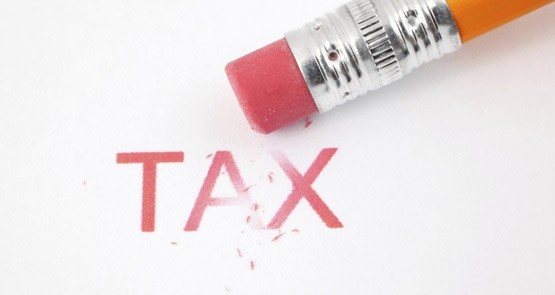
Prime Minister Malcolm Turnbull reckons his narrow win in the July 2 election gives him a mandate to implement policies, including the corporate tax cuts from the May budget. He should take a look at what happened in lower-taxed Ireland this week and wonder if he should be more careful in going down this route.
A report from Ireland’s government statisticians has upended all previous knowledge of what happened to the Irish economy in 2015. The report said the economy grew 26.3% last year. Previously, in March, the Central Statistical Office had estimated growth of 7.8%.
That was three times the growth rate the Irish economy achieved in the mad bad days of the “unlimited” property boom and the “Celtic Tiger” years that ended in a huge financial bust as the banks collapsed and were rescued by a 78 billion-euro bailout package from the EU and IMF. That, in turn, produced a deep recession, which even though ended years ago, still scars the economy and the Irish population and cost the government its majority in an inconclusive national poll earlier in the year.
[How much will a company tax cut boost ‘jobs and growth’?]
The 26.3% growth rate is so large and off the planet that it is unbelievable and has drawn scorn from far and wide — US economist Paul Krugman labelled it “Leprechaun Economics,” while a report in the Financial Times started, amusingly:
“The Irish have written some notable works of fiction — James Joyce and Flann O’Brien produced imperishable classics. Now there is a new addition to the national oeuvre — the official narrative of the country’s economy. According to data released on Tuesday, it grew by 26.3% last year.”
And that’s at constant prices. At current prices, growth was more than 32%, which is absurd.
The absurdly high figure is explained by Ireland’s 12.5% tax rate for business, which has encouraged a flood of investment from companies (mostly US) “inverting” themselves by taking over Irish-based companies and relocating from their former home markets.
Among firms that have inverted to Ireland — mostly through acquisitions — are Perrigo Co. and Jazz Pharmaceuticals Plc. Corporations with assets overseas of 523 billion euros (US$580 billion) were headquartered in Ireland in 2014, up from 391 billion euros in 2013, according to the statistics office. As well, many companies are already located in Ireland (tech and pharma companies) for tax/revenue/profit shuffling — Facebook, Starbucks and Apple are some of the big names that use Ireland in their tax planning.
It helps explain why Ireland is a top five investor in US Treasury securities, with well over US$240 billion invested — most of it the corporate cash float that is sitting in company accounts to take advantage of Ireland’s low tax rate (some companies actually pay less than the 12.5% official rate). American companies refuse to repatriate their money back home to the US because of the higher tax rate there on earnings of 35%.
[The economic case for a company tax cut is collapsing]
But all this tax shuffling and all these inversions artificially inflate the size of Ireland’s economy. When the headquarters of a group of companies becomes resident in Ireland, all of its global profits may be counted as part of the nation’s gross national income, according to the ministry — and that has been boosted by around 7 billion euros — but there is no increase in output or employment. And it also forces Ireland to make higher payments to the EU (which is based on the size of the economy and doesn’t take account of the tax-based nature of the increase in the economy).
The Financial Times nicely captured the problem from being a low-tax regime with this quote from a member of the country’s parliament:
“The question is whether the Irish economy has become so distorted by its tax regime that nobody knows what is happening on the ground. Pearse Doherty, a Sinn Fein member of parliament, said: ‘We now have an economy so intertwined in international tax and accounting stunts that they bring with them a serious risk.’ He said the next reclassification could see an equally dramatic drop in activity.”
And there is a problem about to emerge — a slowdown that the tax lurk can’t offset. Tuesday’s Irish GDP report suggested that activity in the first quarter of this year fell by 2.1%. If that happens and is repeated in the second quarter (and the Brexit vote and the volatility and loss of confidence triggered by that shock vote, could do that), then Ireland will be in recession. So, from a year where the economy grow by more than a quarter to a recession — all in the space of six months, and all due to the distortions of being a corporate tax paradise.








Crikey is committed to hosting lively discussions. Help us keep the conversation useful, interesting and welcoming. We aim to publish comments quickly in the interest of promoting robust conversation, but we’re a small team and we deploy filters to protect against legal risk. Occasionally your comment may be held up while we review, but we’re working as fast as we can to keep the conversation rolling.
The Crikey comment section is members-only content. Please subscribe to leave a comment.
The Crikey comment section is members-only content. Please login to leave a comment.